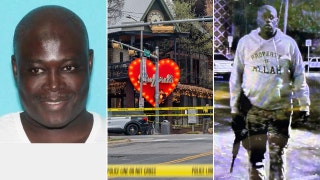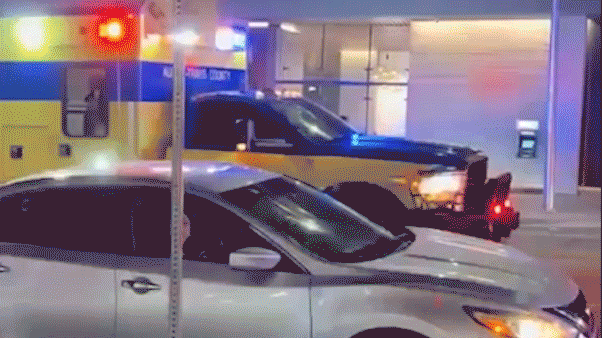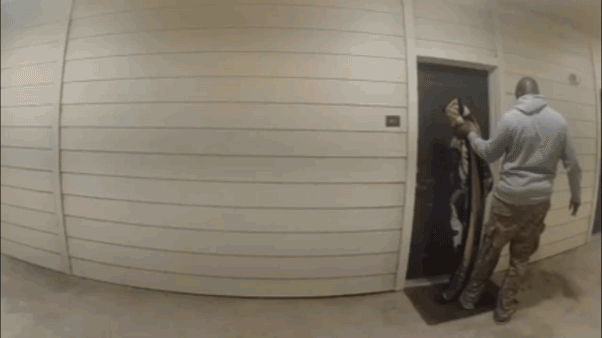HOUSTON, Alaska – When a wildfire threatened the epicenter of Alaska's mushing community, volunteers raced in to make sure man and man's best friend were safely evacuated.
A human-caused wildfire is raging in the Willow area of Alaska, a far-flung community of about 2,000 people living along a 20-mile swath along the Parks Highway, a major road connecting Anchorage and Fairbanks.
The fire started about 1 p.m. Sunday and quickly grew to 10 square miles. Residents were under a voluntary evacuation order, and the highway was intermittently closed because of the heavy smoke that enveloped the area.
Willow is also home to the official start of the Iditarod Trail Sled Dog Race, except this year when little snow forced the start farther north.
Up to 20 mushers, both recreational and professionals, live in the area, and the community mobilized to help get the dogs out of the fire's path.
"The word went out that those dogs needed rescuing, aside from the people, but the dogs can't rescue themselves," said Steve Charles, a member of the Willow Dog Mushers Association. He's a recreational musher to can get on the trail right outside his back door.
The club had also planned for a day like this but never had to execute until Sunday. Vern Halter, an Iditarod veteran and now borough assemblyman, said about 500 dogs were moved in about two hours.
About 200 of those dogs ended up with four-time Iditarod champion Martin Buser at his kennels in Big Lake about 20 miles from the fire. He also was taking in displaced residents, including veteran Iditarod musher DeeDee Jonrowe, who lost her home.
"Everybody's relieved that their dogs are safe and here, but the people that have lost their homes, they are dejected," Buser said Monday afternoon in a phone interview. "And people that their homes got spared are elated."
Buser said there's "a house full — or a kennel full — of diverse moods around here."
He said people are bringing food for the dogs and displaced residents, who are staying at either a visitor's center or a bed and breakfast at his kennel and tourism business.
Charles believed his home was far enough from the fire, but the wind-whipped fire grew quickly on Sunday, forcing him to find shelter for both him and his 13 dogs.
"I didn't realize I would have to be evacuating myself," he said at the American Red Cross evacuation center at Houston Middle School. His own dogs were along a chain line attached to a fence. Charles said he's heard from neighbors that his house was spared.
On Monday, Gov. Bill Walker took an aerial tour of the fire, which has burned at least 25 homes and up to 20 other structures including sheds and outhouses. Walker later said he accepted the Matanuska-Susitna Borough's request for state disaster declaration for the affected area.
Officials said Monday afternoon that the fire was zero percent contained, with the weather expected to continue to be warm and dry. One firefighter has been treated for heat exhaustion.
Robin Edgell only had time to grab one thing when she fled her home in Willow: "Pictures, the only things that can't be replaced," she said outside a motorhome parked at the Red Cross evacuation center.
Edgell said the fire moved quickly on Sunday, and she described as just "horrific."
"You just see huge, billowing clouds of smoke in the air," she said. "And the wind's blowing, and you feel the direction it's blowing. It's like it's blowing the clouds right at us, the fire's coming."
Tankers have unloaded retardant, and a helicopter dropped loads of water as more aircraft planned to join the fight. Nearly 200 personnel were battling the blaze and elite hot shot crews were expected to arrive on Monday.
The same lack of snow that forced the Iditarod to start this year in Fairbanks rather than Willow is part of what is fueling the fire, along with low rainfall this spring and hot, dry, windy conditions now.
"It's in the 80s right now, and we usually don't get that kind of weather," said Casey Cook, the emergency manager for the Matanuska-Susitna Borough. "So all those combine to make it a very heavy fire fuel area."









































